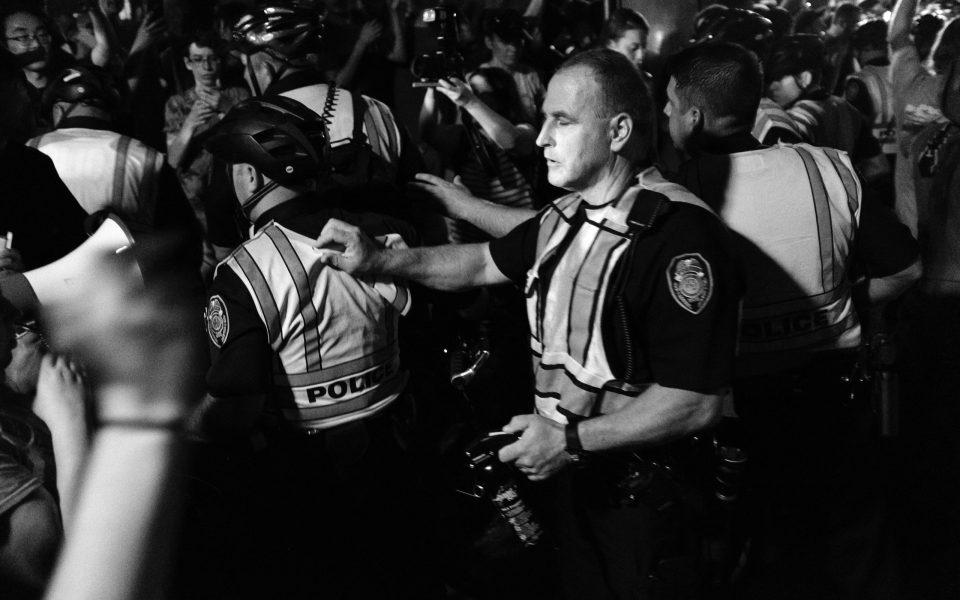Back when I was getting my journalism degree, I got an invaluable piece of advice from a working journalist named Allen Johnson — not the guy from the News & Record — who taught our reporting class.
This Johnson was also the cops-and-courts reporter for the Louisiana Weekly at the time, a statewide African-American newspaper with a reputation for pulling no punches.
In covering the New Orleans Police Department, one of the most corrupt in the world, he had no shortage of material.
“But you’ve got to be fair to them,” he said to me back then, “and you’ve got to write about the good stuff, too.”
I’ve been thinking a lot about cops lately. Probably we all have.
In November, the state’s seven largest counties, Guilford and Forsyth among them, elected new, black sheriffs. Not everyone is happy about it, but I believe that more black folks in leadership positions is exactly what American law enforcement needs.
Pivoting to the city of Greensboro, I want to take my old professor’s advice and talk about the incident at Smith High School, where a man carrying a couple guns and a buttload of ammunition was neutralized before anything happened.
But it’s hard to see the good after watching the body-camera video of Greensboro police officers and a couple of EMTS standing by while Marcus Smith, hogtied, died on the street in front of them and they rushed to cover their asses.
I’ve known a lot of cops over the years. I met dozens of detectives and other plainclothes guys when I tended bar near the Nassau County Courthouse on Long Island. One of them drank perfect Manhattans — the only person for whom I ever made one.
There were always uniformed cops in the New Orleans bars I worked in, some on the payroll some not; all of them drank for free. One of them was the former sergeant of an officer named Antionette Frank, who became the first women on Louisiana’s death row after she robbed a restaurant one night, in the process shooting and killing her patrol partner, who was working detail at the restaurant.
As we grew up, some of my friends became cops. I admire them all for the choice they made — I would never do it — and for the officers they’ve become.
I’ve also been arrested a bunch of times. It’s not important how many, or why, but it’s noteworthy that most of those interactions were cordial and professional, though not always.
And it’s true that I credit the GPD for saving my life, because I never would have quit drinking if they hadn’t pulled me over so many times.
Like my former professor said, police departments are not monolithic. They do good and they do bad, occasionally at the same time.
But it’s important that we look at all of it.
Join the First Amendment Society, a membership that goes directly to funding TCB‘s newsroom.
We believe that reporting can save the world.
The TCB First Amendment Society recognizes the vital role of a free, unfettered press with a bundling of local experiences designed to build community, and unique engagements with our newsroom that will help you understand, and shape, local journalism’s critical role in uplifting the people in our cities.
All revenue goes directly into the newsroom as reporters’ salaries and freelance commissions.


Leave a Reply